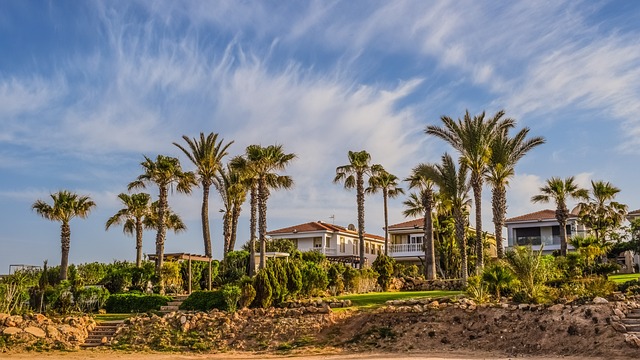When considering the purchase of an electric cycle (EC) in Singapore, it's essential to focus on the battery range and efficiency due to the city-state's unique geography and tropical climate. The EC price Singapore market offers various models that cater to different budgets, but for optimal satisfaction, prioritize bikes with high-capacity batteries and energy efficiency. These characteristics not only enhance your daily riding experience in an urban environment but also lead to significant cost savings over time. Additionally, government initiatives like the EV EAS and Open EVS offer substantial subsidies, making electric vehicles more accessible and affordable for first-time buyers. In the realm of property investment, Executive Condominiums (ECs) in Singapore provide a balance between affordability and quality living, with long-term support from professional management and maintenance services. The EC price in Singapore is influenced by various factors including location, unit type, and amenities, and first-time buyers should consider the long-term financial implications and subsidies available to them. Post-purchase, ECs are managed by the Management Corporation Strata Title (MCST), ensuring consistent upkeep of facilities and common areas, thereby maintaining the property's value.
Embarking on the journey of electric mobility can be both exhilarating and daunting. For first-time buyers in Singapore, understanding the ecosystem of Electric Cars (ECs) is crucial before making a purchase. This comprehensive guide navigates you through the ec price landscape in Singapore, detailing cost considerations that will shape your decision. We delve into assessing your budget and financial planning to ensure a smooth transition into electric car ownership. Battery range and efficiency are pivotal factors that affect your EC’s performance and longevity, which this guide will help you evaluate. Additionally, first-time buyers can take advantage of various incentives and subsidies available in Singapore. Choosing the right model and understanding after-sales support and maintenance are also vital aspects covered in this guide to ensure a sustainable and cost-effective driving experience with your new EC.
- Understanding the Ecosystem of Electric Cars (ECs) in Singapore
- Cost Considerations: Breaking Down the EC Price in Singapore
- Assessing Your Budget and Financial Planning for an EC Purchase
- The Importance of Battery Range and Efficiency in ECs
- Incentives and Subsidies for First-Time Electric Car Buyers in Singapore
- Choosing the Right Model: Factors to Consider for New EC Owners
- After-Sales Support and Maintenance: What to Expect with an EC in Singapore
Understanding the Ecosystem of Electric Cars (ECs) in Singapore

Navigating the electric car (EC) market in Singapore requires a solid understanding of the local ecosystem, which is characterized by its unique regulatory framework and evolving infrastructure. Prospective buyers must first familiarize themselves with the Certificate of Entitlement (COE) system, which dictates how long one can use a vehicle on the road before it expires. The pricing of ECs in Singapore, as reflected in the term ‘Ec Price Singapore,’ is influenced by this COE premium, which can significantly affect the overall cost of ownership. It’s crucial to stay updated on COE trends, as they fluctuate based on demand and policy changes.
Beyond the COE, the total cost of owning an EC also includes factors such as the price of the car itself, battery leasing options, tax rebates, and the expanding network of charging stations. The Land Transport Authority (LTA) and various private entities are continuously investing in charging infrastructure to support the growing number of ECs on the road. As of your reading this, there are over 300 public charging points available across Singapore, with plans to increase this number further. Understanding the interplay between these factors will empower first-time buyers to make informed decisions when considering an EC purchase in Singapore. It’s advisable to research the latest models and their respective prices, keeping in mind the ecological benefits and the government’s push towards sustainable transportation.
Cost Considerations: Breaking Down the EC Price in Singapore

When considering the purchase of an Executive Condominium (EC) in Singapore, a first-time buyer must delve into the multifaceted cost considerations that come with this significant investment. The EC price in Singapore is influenced by various factors, making it imperative to unravel each component of the pricing structure to make an informed decision. Prospective buyers should be aware that the price of an EC typically encompasses the base purchase price, additional costs such as legal fees and stamp duties, and potential maintenance fees post-purchase. The base price varies significantly across different ECs, with factors like location, development size, and amenities playing pivotal roles. For instance, ECs situated in more mature estates or near second Singaporean citizenship (S Pass/PR) households command higher prices compared to those in less developed areas.
Furthermore, the cost of an EC doesn’t end at the sale transaction; there are additional expenses to consider. The total price tag includes the Booking Fee, Option to Purchase Fee, and Legal fees for drafting and processing the documents. Stamp Duty on the purchase is progressive, with varying rates depending on the price bracket of the property. Additionally, future maintenance fees are a recurring expense post-handover, which can affect your long-term financial planning. It’s crucial to factor in these costs when budgeting for an EC, as they collectively contribute to the overall EC price in Singapore and can significantly impact your financial well-being over time. By meticulously examining each component of the EC price, first-time buyers can navigate the purchase with greater clarity and confidence.
Assessing Your Budget and Financial Planning for an EC Purchase

When considering the purchase of an Executive Condominium (EC) in Singapore, a pivotal step is to assess your budget and engage in comprehensive financial planning. Prospective buyers must first determine their financial capacity by evaluating their income, savings, and existing financial commitments. This due diligence ensures that you are within the eligibility criteria for an EC loan, which typically includes a maximum loan-to-value ratio set by financial institutions in Singapore. The latest EC prices in Singapore can be a guiding benchmark to gauge what you can afford; prices fluctuate based on market trends and the location of the property. It’s crucial to consult with financial advisors or use online resources like the Housing & Development Board (HDB) to understand the various financing options available, including the Fixed Rate Scheme for EC loans, which can offer interest rate stability over a set period. By setting a realistic budget, you can narrow down your options to ECs that fit within your means, allowing for a smoother and more informed purchasing process. Additionally, it’s wise to account for additional costs such as legal fees, stamp duties, and maintenance fees associated with EC ownership. Prudent financial planning will not only facilitate the acquisition of your EC but also provide peace of mind that your investment is sound and sustainable in the long term.
The Importance of Battery Range and Efficiency in ECs

When exploring electric cycles (ECs) for the first time, understanding the nuances of battery range and efficiency is paramount. In Singapore, where geography and climate can impact your travel experience, a bike’s ability to cover substantial distances on a single charge becomes a significant factor. ECs in Singapore are priced competitively, with options ranging from the Ec Price Singapore that suit diverse budgets, but it’s not just about the upfront cost—the longevity and performance of the battery will determine your long-term satisfaction with the purchase. A bike with superior battery range allows for greater flexibility in planning daily commutes or leisurely rides without the anxiety of running out of power prematurely. Efficiency, too, plays a crucial role; an EC that consumes less energy not only extends its operational lifespan but also can translate to cost savings over time. For first-time buyers, prioritizing ECs with high battery capacity and energy efficiency ensures optimal performance and value for money, aligning closely with the Ec Price Singapore that fits your initial investment and future budget considerations. When comparing models, consider how the battery technology integrates into the bike’s design—this synergy directly affects the overall riding experience and can make all the difference in adapting to the dynamic urban landscape of Singapore.
Incentives and Subsidies for First-Time Electric Car Buyers in Singapore

For first-time electric vehicle (EV) buyers in Singapore, navigating the landscape of electric cars can be both exciting and daunting. The cost of acquiring an EV is a significant factor for many prospective owners. However, to offset these costs, the Singapore government has introduced various incentives and subsidies specifically designed to encourage the adoption of electric vehicles. These initiatives not only make the initial purchase more affordable but also support the transition towards greener transportation options. As of recent updates, the Electronic Vehicles Early Adoption Scheme (EV EAS) offers subsidies that can cover up to $20,000 off the price of an electric car, depending on its type and battery capacity. This substantial support directly impacts the EC price in Singapore, making it more accessible for first-time buyers. Additionally, the Open Electric Vehicle Scheme (Open EVS) provides further subsidies for models that are eligible under this scheme, contributing to a reduction in the overall cost of ownership. Prospective buyers should explore these options as they can significantly influence the affordability and viability of owning an electric car in Singapore. It’s advisable to stay updated on such initiatives as they evolve over time, ensuring that first-time EV buyers can capitalize on the most current incentives available for their sustainable choice.
Choosing the Right Model: Factors to Consider for New EC Owners

When stepping into the realm of Executive Condominiums (ECs) in Singapore, selecting the right model that suits your lifestyle and financial situation is paramount. New EC owners should consider several factors to ensure their purchase aligns with both their immediate needs and future aspirations. Firstly, assessing the ec price in Singapore is a critical step. Prices can vary significantly across different projects, districts, and even within the same development due to various factors like frontage, unit type, and facility provision. It’s advisable to engage in thorough research or consult property experts to understand the pricing trends and market value. Additionally, consider your eligibility for EC ownership, as Singapore’s housing rules may impact your choices. Proximity to essential amenities such as shopping centers, schools, and transportation nodes also plays a crucial role in daily convenience and resale value. Another important aspect is the size and layout of the unit, which should cater to both your current family composition and potential expansion in the future. Lastly, evaluate the development’s facilities and services offered. A well-equipped gym, function rooms, or even smart home features can significantly enhance your living experience. By carefully considering these aspects, first-time buyers can navigate the EC market with confidence and make an informed decision that meets their budget and lifestyle preferences.
After-Sales Support and Maintenance: What to Expect with an EC in Singapore

When considering the purchase of an Executive Condominium (EC) in Singapore, especially as a first-time buyer, it’s crucial to understand the after-sales support and maintenance services that come with your investment. Owners of ECs in Singapore enjoy the same level of after-sales service as those living in private condominiums. This includes professional management and maintenance from the developer for the first year following completion, which is stipulated by the CSC (Central Provident Fund’s Housing & Development Board). After this initial period, the maintenance responsibilities typically transition to the Management Corporation Strata Title (MCST) when a certain percentage of units within the development are sold.
The MCST is responsible for managing the common property and ensuring that the living environment remains pleasant and secure. This includes routine maintenance, lifts servicing, landscaping, and security. As an EC owner, you can expect regular updates from the MCST on maintenance schedules and any planned renovations or upgrades. Additionally, in terms of EC price trends in Singapore, it’s important to note that purchasing an EC is generally more affordable than a private condo due to subsidies available for Singaporeans under the CPF Housing Grant. This affordability extends to the maintenance fees, which are designed to be reasonable and reflective of the development’s scale and amenities. When evaluating EC options, consider the developer’s reputation for quality and after-sales service, as well as the potential long-term costs associated with maintenance to ensure your investment is sound and sustainable in the vibrant property landscape of Singapore.
Navigating the electric car (EC) market, particularly in Singapore, can be a transformative experience for first-time buyers. This guide has demystified the ecosystem surrounding ECs, providing clarity on the cost considerations such as the EC price in Singapore, and offering practical advice on budgeting and financial planning to make an informed decision. Understanding battery range and efficiency is key to maximizing the benefits of owning an EC. First-time buyers are encouraged to explore the various incentives and subsidies available to them, which can significantly ease the transition. Selecting the right model involves a balance between personal needs, lifestyle, and environmental considerations. Additionally, this guide has highlighted the importance of considering after-sales support and maintenance to ensure long-term satisfaction with your EC. Embracing the shift towards electric mobility in Singapore is not just an environmentally conscious choice but also a financially savvy one, with the right planning and resources. Prospective buyers should now be well-equipped to make their first EC purchase with confidence.



